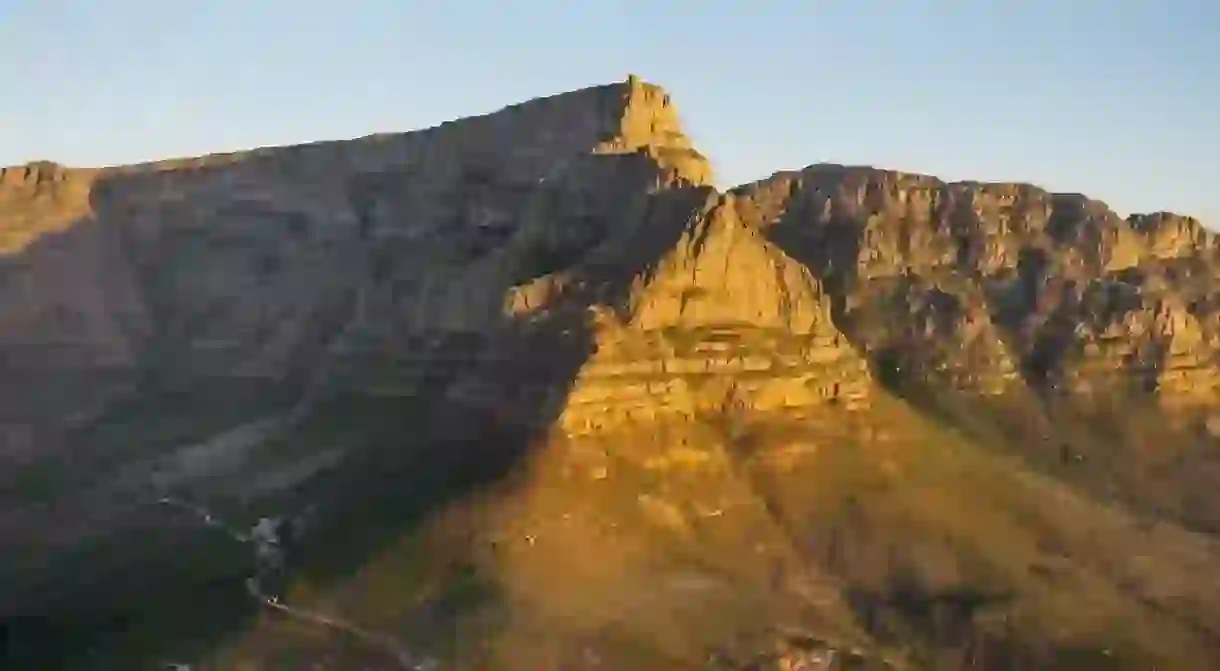An Essential Guide to Hiking Mountains in Cape Town

Cape Town’s mountains are world famous, and they make for incredible hiking. There are a multitude of options, whether you’re looking for a quick and easy scenic walk, incredible aerial urban views or to push your limits with a strenuous and isolated hike. But anything more than a casual trundle on Table Mountain requires some advance preparation and consideration of key safety issues. Though most hikes in Cape Town end without incident, there are real dangers, from sheer cliffs and venomous snakes, through to crime and rapidly changing weather.
Pick your route carefully
There are a myriad of hikes in and around Cape Town. If it’s your first time heading out, you might want to tackle something like Platteklip Gorge or Lion’s Head. Though both carry risks – you’ll still walking high paths, and need a pretty good level of fitness – they are both well trafficked and established.
If you’re looking to push your limits, there are several exhilarating hikes to consider. Many of these offer serious exposure, are isolated and are only for the most skilled and knowledgeable hikers.
If you’re not familiar with the mountain, it’s important to hike with someone who is. There are several guides who can lead you safely up the mountain and help you tackle some of the more obscure routes. If you’re looking to branch out without a guide, it’s important to pick up a map or book. Most hardened Table Mountain hikers consider Tony Lourens’s Table Mountain Classics to be the gold standard of hiking guides in the city. The excellent Slingsby Maps are great for carrying along on the hike.

Organise a group and let people know
It’s always best to hike in a group. There are several real risks when out hiking, and even a simple slip and fall on a well-marked path can be deadly for a solo hiker. There has also been an increase in crime on the mountain, and though it’s no guarantee of safety, hiking in numbers can help reduce the risk of being a target.
If you can’t rally enough people to join in on your hike, consider joining one of the city’s popular hiking clubs. These are often free or donation-based and are led by friendly, welcoming leaders who’ll guide you along some of the city’s famous routes. The oldest and most established of these hiking groups in Cape Town is the Peninsula Ramblers.
If you get lost while on a hike, don’t split up. Rather stay as a group and retrace your steps.

Pack appropriately
Don’t head onto the mountain without packing appropriately. The weather in Cape Town can change quickly and dramatically, and it’s important to be prepared for all eventualities.
Always bring a jacket and warm clothing, even if it’s warm and sunny when you leave. The weather can change quickly, and it’s often hard to predict what’s happening on the other side of the mountain. Likewise, bring a hat and wear lots of suncream and bring it along for the hike if you’ll be out for some time. The South African sun can be incredibly harsh.
Other key items to bring along: appropriate hiking or trail running shoes, plenty of water, a cellphone for emergencies (but leave any unnecessary valuables behind), snacks and cash or a credit card if you intend taking the cable car down.

Know the emergency numbers
Unfortunately, emergencies on Cape Town’s mountains are a reality that all hikers need to consider. Though many think hikes like those up Platteklip Gorge and Lion’s Head are safe and without risk, these routes often attract the most rescue callouts, because people fail to take them seriously.
It’s always a good idea to carry a cellphone with the necessary emergency numbers. The city has an impressive mountain rescue team, and they’ll swoop in and pick you up, or hike to your position, if you’re in difficulty. These are the most important emergency numbers to record while hiking:
General emergencies: +27 (0)21 480 7700
Medical emergencies from a cellphone: 112
Table Mountain National Park: +27 (0)21 957 4700 / 0861 106 417
Wilderness Search and Rescue: +27 (0)21 948 9900

Respect the environment
Most of the Cape’s mountains fall within national parks, and they are sensitive ecological regions. Stick to the main paths, do not pick flowers, feed animals or drop litter, and be aware of fire risks such as smoking or cooking.

Be aware of crime
Unfortunately, there have been incidents of crime on Table Mountain over the years. Given the vast nature of the mountain, with dozens of entry points, it’s almost impossible to police comprehensively. Some criminals take advantage of this. There’s no way to fully mitigate against this risk, though officials suggest going in large groups, sticking to well-populated routes and avoiding walking after dark.
It’s important to be alert to your surroundings: if you notice someone suspicious ahead, such as a skittish lone hiker or someone hiding in the bushes, it’s best to avoid them altogether. Leave behind all unnecessary valuables, such as passports and large amounts of cash and jewellery, and if confronted, be prepared to hand over what you have.














